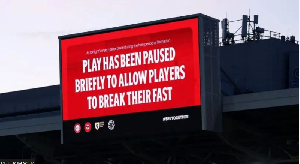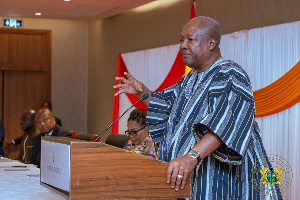General News of Wednesday, 13 November 2019
Source: classfmonline.com
Mahama just 'taxed, borrowed and spent' without planning – Ofori-Atta
Finance Minister Ken Ofori-Atta has described 2019 as a good year for Ghana despite the Akufo-Addo inheriting a government whose economic formula entailed taxing, borrowing and spending.
Presenting the 2020 budget and fiscal statement before Parliament on Wednesday, 13 November 2019, Mr Ofori-Atta said: “Mr Speaker, in substance, 2019 has been a very good year for Ghana. This is the year that one can confidently say that God’s blessing of the hard work is beginning to manifest, putting us on a positive trajectory for a proper lift. I say so because: We have won some painful but necessary battles for God and country; we have quietly but incontestably achieved significant structural changes for the economy; we have stabilised greatly the macro-economic turbulence that was all too regular a feature in the management of the national economy; we have delivered on our flagship programmes; Mr Speaker, the gains made so far are significant”.
It is proper, he said, “To put this budget into perspective to understand how far we have come. On Thursday, 2 March 2017, I had the honour and privilege to present the first budget of President Akufo-Addo to this House. At that time, as you may recall, the economy was in a very bad shape, suffocating under a mixed weight of debts, arrears, very high cost of living, high youth unemployment and the worst growth rate since 1994”.
Moreover, he said, growth in agriculture was declining, industry growth was in the negative; interest rates were high; the banking system was weak; unemployment was rising; and businesses and households were working mainly to pay off their utility bills.
Mr Speaker, the Finance Minister said, “The poor state of public finances, weak policy implementation and lack of policy credibility resulted in Ghana requesting an IMF bailout in August 2014. The economic model being practised at the time was a simple, unexamined formula of tax, borrow and spend without a focus on production. The previous government resorted to some draconian fiscal measures; notably the increase in the tax burden on many items and activities, including condoms, cutlasses as well as ‘kayayie’”.
“Mr Speaker, a freeze was imposed on the public sector from employing people. There were cuts to a number of areas of spending, most notably were cuts to research allowances for lecturers, nursing training, and teacher training allowances. Yet, the government then was awarding billions of cedis worth of contracts without knowing about how to pay for them. It was a case of living for today and leaving tomorrow to take care of itself.
“President Akufo-Addo’s maiden State of the Nation Address captured the situation and his Government’s attitude towards it succinctly: ‘Too much time, energy and resources were spent in the past, in my view, without a deliberate, conscious assessment of their impact on jobs, and whether or not we were spending wisely to improve the lives of the people, communities and businesses. But, I was not elected by the overwhelming majority of the Ghanaian people to complain. I was elected to get things done. I was elected to fix what is broken and my government and I are determined to do just that.”
“Mr Speaker, that is exactly what we have done within the last three years. The President had set out his vision and programmes in clear language in his maiden address. He said this within the context of an economy that was seriously challenged; the full extent of which we were yet to discover. And yet, by January 2017, the nation was hopeful because change had come. In the 2017 Budget, we illustrated the NPP government’s expectations, aspirations and hope for Ghana’s future, using the miracle of Jesus when he fed 5,000 people with 5 loaves of bread and two fish. We also declared that the budget was going to ‘sow the seeds for growth and jobs’.
“Quite apart from the fragile structural policy and worsening macro-fiscal situation passed on to us, this government had to also address serious contractual commitments. The exorbitant energy bill from expensive, difficult-to-explain ‘take-or-pay’ of Power Purchase Agreements; a pile-up of unpaid arrears and outstanding commitments, mostly accrued from contracts awarded without the slightest care for the public purse.
“Mr Speaker, if you add the cost of cleaning the financial sector challenges to the long list of legacy bills that the Akufo-Addo government had to settle, the cost to the Ghanaian tax payer is around GHS33 billion”, Mr Ofori-Atta noted












